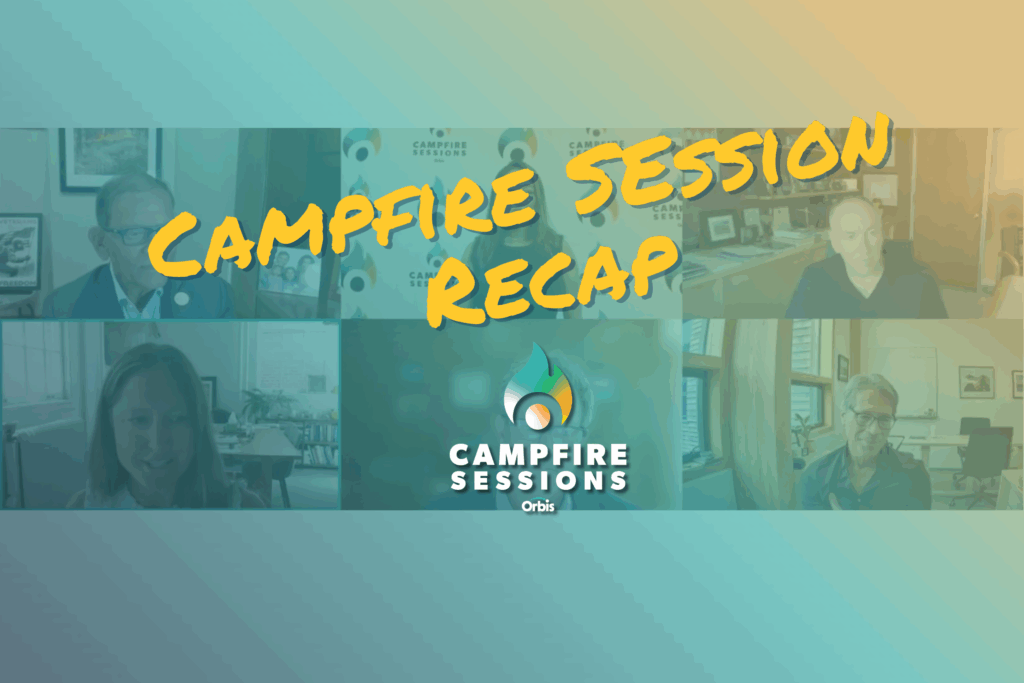

On the heels of an evolving environmental and educational landscape, the Orbis Campfire Session brought together forestry deans and academic leaders from across the U.S. to discuss how they’re navigating change—and preparing the next generation to lead in forestry, conservation, and natural resources.
From enrollment challenges to technology integration, from funding cuts to shifting land management policies, this session was a timely reality check—and an inspiring look at how higher ed is adapting in real time.
What’s Keeping Deans Up at Night?
The tone opened with a candid discussion of what’s causing the most pressure in academic leadership today:
- Budget uncertainty at the federal level is straining research funding, especially for Forest Service collaborations and graduate programs.
- Enrollment trends vary—but many programs are feeling the pinch from demographic shifts and increasing administrative caps on admissions.
- There’s an overarching tension between optimism and anxiety: while students are eager, faculty are navigating rapidly changing expectations and limited resources.
Then vs. Now: How Forestry Curriculum Has Evolved
Panelists reflected on how forestry programs have matured:
- Traditional silos are breaking down—forestry is now often blended with wildlife, recreation, and broader stakeholder management.
- Curricula are more integrated, with new classes on collaborative conservation, social-ecological systems, and tech-forward topics like geospatial informatics.
- Students are increasingly “stacking” majors—pairing forestry with dance, business, or other disciplines to become more versatile professionals.
Top Skill Gap? Communication
In a live poll, attendees overwhelmingly voted communication as the #1 skill today’s grads are missing.
- While technical skills remain vital, employers want grads who can speak clearly, write well, and navigate interpersonal dynamics.
- Panelists stressed the importance of “old school” communication in an era of screens and short attention spans.
Enrollment Challenges and Silver Linings
The conversation around recruitment revealed varied experiences:
- Some universities are bursting at the seams with applications but are held back by enrollment caps or housing shortages.
- Others are growing through transfer students and online programs, offering flexible paths into forestry.
- In rural states like Montana, local outreach and in-state tuition help programs thrive despite population constraints.
Tech is Changing Everything—Fast
Whether it’s remote sensing, LiDAR, or machine learning, tech is reshaping the field:
- Students need to graduate with real-world geospatial and data skills—many programs now require GIS coursework.
- Panelists noted a growing divide between recent grads fluent in tech and older professionals still using tape measures in the field.
- Online degrees and certificates are helping upskill the existing workforce without requiring them to leave their jobs.
Recreation, Research & Innovation
The session also highlighted new directions in research:
- Programs are exploring wildlife-based tourism, private land recreation leasing, and the economics of conservation.
- One standout initiative is Oregon State’s TallWood Design Institute, a tech hub advancing mass timber construction as both a climate and housing solution.
- Schools are finding creative ways to integrate outdoor learning, such as nature preschools, research forests, and hands-on recreation studies.
Funding Cuts & Shifting Partnerships
Across the board, deans are bracing for the impact of reduced federal funding:
- Multiple institutions have already experienced terminated grants and delayed reviews, especially in climate and fire research.
- The decline of federal support is prompting new partnerships with private industry and philanthropy, from endowed summer camps to online workforce training.
- Research co-ops with industry partners are proving to be resilient and adaptable funding models.
Policy and Climate: Long-Term Drivers of Change
While budget cuts hurt in the short term, panelists warned that policy shifts—especially around climate, fire, and land management—will have deeper impacts.
- States like Oregon are implementing stricter forest practice rules, directly affecting curriculum and harvest tax-based research funding.
- Changes in public access and recreation demand since COVID are also reshaping how students think about land use, conservation, and stakeholder engagement.
Final Advice: Embrace Change, Stay Connected
When asked how they plan for success in a rapidly changing world, the panel shared this wisdom:
- Partnerships are everything—from industry to alumni to NGOs, building community around your program builds resilience.
- Invest in people—recruiting and retaining great faculty and students keeps the momentum going.
- Model what you teach—collaboration, innovation, and laughter go a long way in uncertain times.
Missed the session? Don’t worry—watch the full recording here ➝

Let’s Work Together
Orbis helps you make better sense of your assets, and better use of everything involved in managing them. Request more information or book a consultation with us today.